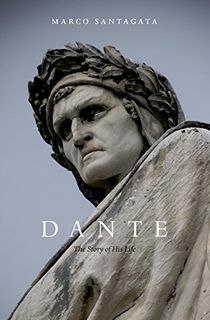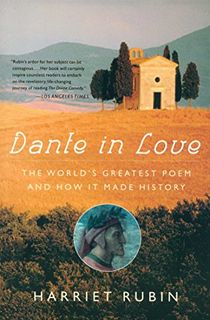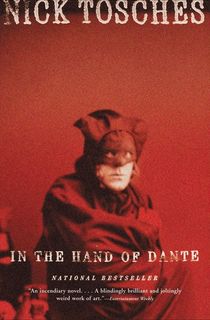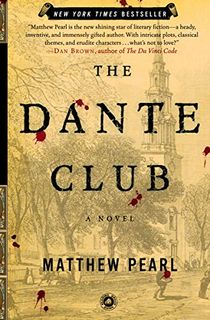The mighty city-state of Florence made a catastrophic mistake when it exiled Dante Alighieri (1265-1321) in 1302 from its protection on charges of corruption and nonconformity. Not only did it expel its greatest intellectual, but it also provided him with the opportunity to pursue justice in a way that would damage Florence’s reputation as a supposed free and fair republic forever: through his prose. A political outcast with a restless mind and a busy pen, Dante exposed both Florence’s best and worst qualities through epic poems so compelling and legendary they launched the Early Italian Renaissance. To name just a few: Divina Commedia or the Divine Comedy, his masterpiece, as well as La Vita Nuova (A New Life).
In The Divine Comedy, Dante leads readers through his self-inserted alter ego’s travels through the afterlives of the dead, where guilty parties (such as his detested enemies) are put through heinous eternal tortures in hell, while the good and blameless are rewarded with heaven’s bounty instead. The cultural influence Dante enjoyed after the publication of his poems would not be matched in Italy until the emergence of such luminaries such as Michelangelo and Leonardo da Vinci. Florence, in the 14th century, was seemingly not ready to accept a writer’s true power, though the city seemed to learn its lesson by the time the Medici family rose in prominence around a century later and started patronizing Florence’s poets and philosophers much more seriously.
Here are four highly recommended books by modern-day authors who do better by Dante than Dante did by Florence. These well-researched and stylishly written nonfiction books and novels honor his memory rather than sabotage it, and through them Dante still continues to triumph, both historically and artistically, over his native Florence, the medieval superpower that rejected him.
Nonfiction

Dante: The Story of His Life
There are numerous biographies on Dante’s life as a whole, but this one does more than just provide dates and facts. Historian Marco Santagata delves into the psychology of perhaps the most refined and complicated mind of the European Middle Ages, dissecting the process behind Dante’s decision-making and the precarious political and religious climates that ruled over his entire life.
This account has won an impressive number of awards and distinctions, including A Times Literary Supplement Book of the Year, but perhaps its greatest accomplishment is in its translation. The book was translated from Italian to English by renowned translator Richard Dixon, also responsible from bringing excellent literary works like The Prague Cemetery by Umberto Eco and Distant Light by Antonio Moresco into the English-speaking literary world.

Dante in Love: The World's Greatest Poem and How It Made History
The fictionalized Dante journeys through the nine circles of hell, and then catapults up to the realms of heaven to explore what is available to good people as well. In real life, Dante never stopped moving after his tragic exile from Florence. Historian Harriet Ruben meticulously documents Dante’s travels from Florence to Rome, and then from Rome to Siena, and so on, always seeking a new home but never quite finding it. All the while, he pined for his native Florence and for the memory of the beautiful Beatrice Portinari, his famously unrequited love. T. S. Eliot, Sigmund Freud, Primo Levi, and Bruce Springsteen all followed in his footsteps hundreds of years later, seeking the answers he couldn’t find.
Fiction

In the Hand of Dante
Tosches as an author understands that what Dante has written is so valuable a prize that any obsessive bibliophile, touched by the sin of greed, would be willing to risk it all to possess it. In the Hand of Dante is a novel that explores such a scenario. After the original manuscript of The Divine Comedy is discovered hidden deep within the crevices of the Vatican Library, a war over who has the right to keep it or sell it ensues. Tosches' own self-insert is called upon to authenticate the artifact, but he seizes it for himself, potentially damning his soul in the process.
Dante himself appears as a character in a parallel storyline, allowing Tosches to interpret the personality of the world’s most mysterious poet. Tosches humanizes Dante and brings him back to Earth from heaven and hell, while he rewrites himself into a Dante-esque myth.

The Dante Club: A Novel
The year is 1865 in Boston. The Dante Club, an exclusive collective made up of Harvard professors and ambitious poets, gathers together to discuss and plot the coming publication of America’s first-ever translation of The Divine Comedy. Their opponents in the cause are the ruthless and racist Boston Brahmins, who despise foreign influence in America of any kind.
The conflict of Pearl’s novel moves beyond the mere literary when a series of horrific murders inspired by the events of The Divine Comedy paralyze the city of Boston with chaos and fear. The Dante Club, the undisputed experts of the text, are drawn into the criminal investigations and must utilize their wits to help catch the killer. All the while, they must protect their project, as they are the guardians of Dante’s reputation in the States.



